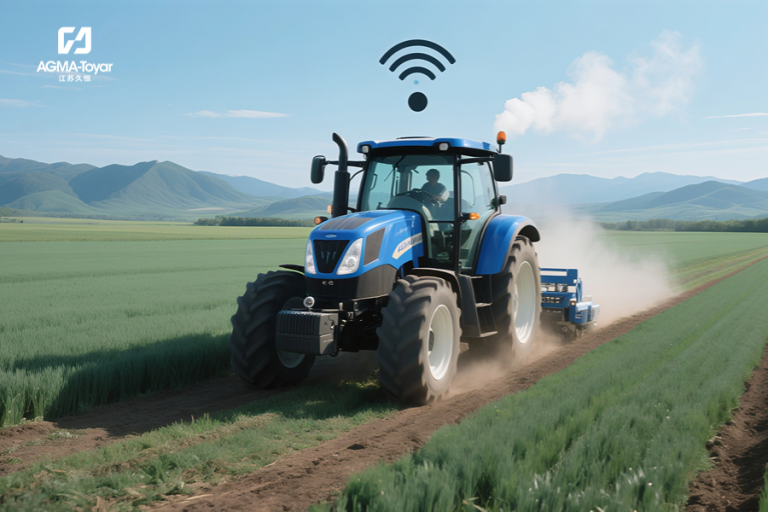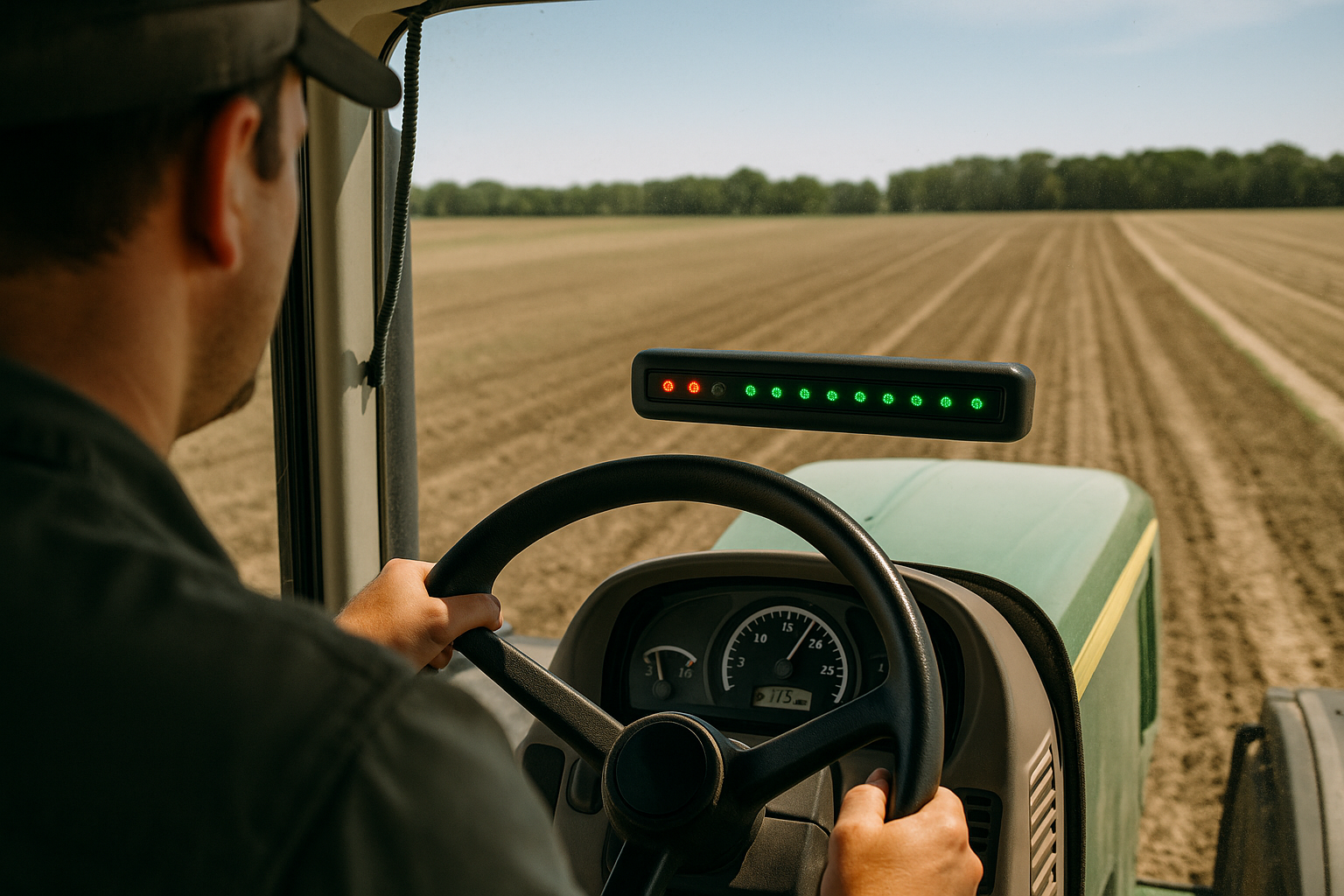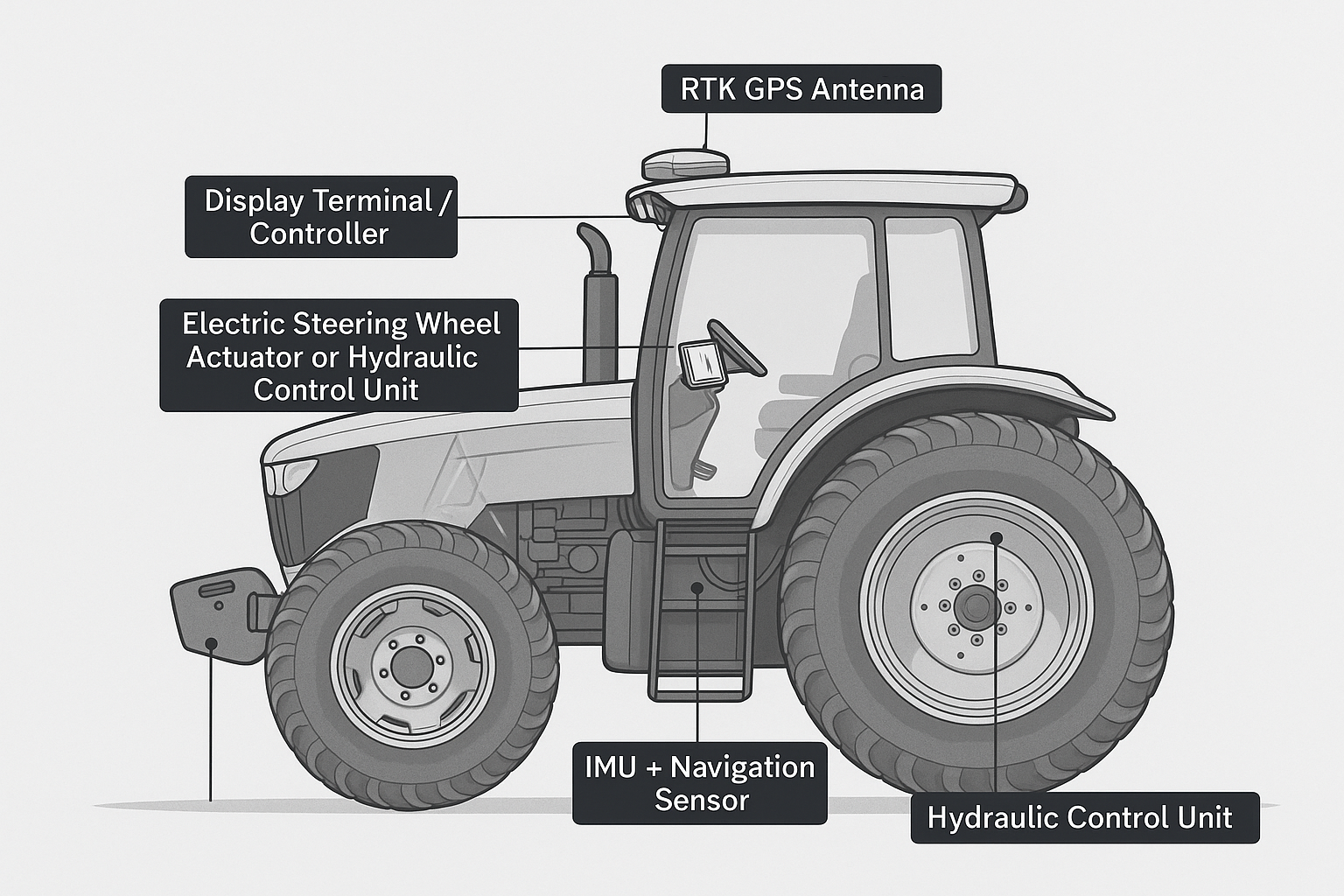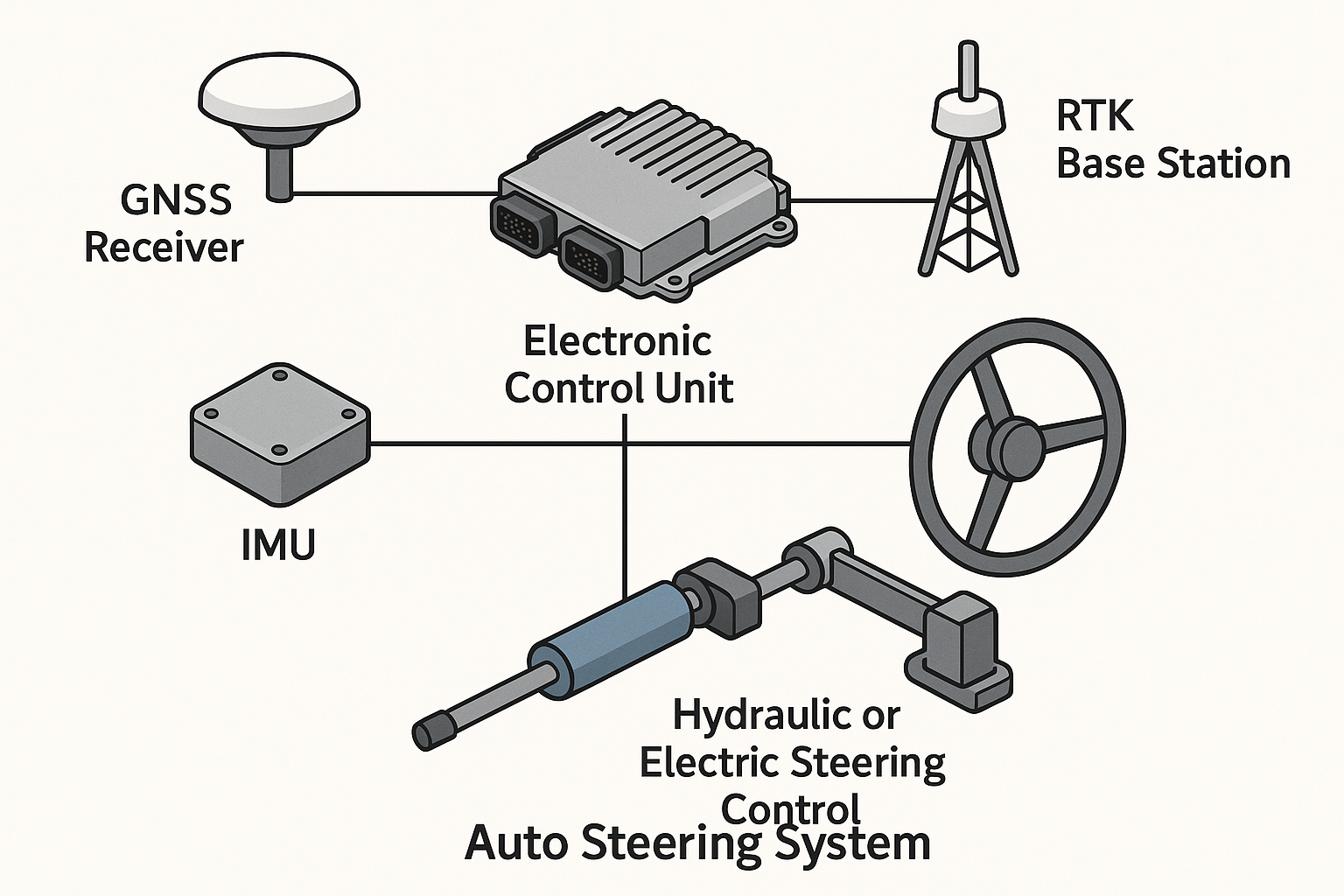Introduction
Precision agriculture is reshaping farm operations. By pairing GPS guidance with RTK centimetre‑level accuracy, modern auto‑steer systems cut overlaps, reduce input waste and let operators work longer with less fatigue. Below you’ll find a clear, side‑by‑side look at the three most common retrofit options—from entry‑level lightbars to professional hydraulic kits—so you can match technology to your fields and budget.
Lightbar Guidance (Manual Visual Aid)
1.How It Works
The lightbar guidance system uses LED lights to show direction. The driver follows the light bar to stay on track. It is simple and easy to use.
2.Advantages
- Low cost, good for entry-level users
- No need to modify the tractor
- Easy to install, perfect for seasonal operators
3.Limitations
- Accuracy depends entirely on the driver
- No hands-free steering; fatigue on long passes
- Unsuitable for strip-till, planting or other high-precision jobs
4.Application
Useful for small farms and basic tasks. Good for fertilizer spreading or spraying. Works as a starting point for precision agriculture.
Electric Steering‑Wheel Kits (Add‑On Motor Drive)
1.How It Works
This auto steering system uses a motor to turn the steering wheel. It works with GPS navigation agriculture and RTK precision positioning. The system controls the tractor with high accuracy.
2.Advantages
- ±2.5 cm pass-to-pass accuracy with RTK
- No hydraulic plumbing—compatible with most tractors, combines, sprayers
- Quick to swap between machines; perfect for custom operators
- Hands-free on long rows; reduces fatigue and improves seed placement
3.Limitations
- Requires stable 12/24 V power and a solid steering column
- Motor can struggle in deep mud or with heavy front loaders
4.Application
Ideal for medium to large farms. Useful for planting, ridging, and film laying. A solid step in agricultural automation.
Integrated Hydraulic Valve Kits (Direct Wheel Control)
1.How It Works
This tractor steer system connects to the hydraulic valve. It controls the wheels directly—no interaction with the steering wheel needed. Many new tractors ship “autosteer ready,” requiring only a valve and display unlock.
2.Advantages
- Fastest response and highest stability, even on rough ground
- Maintains ±2 cm accuracy all day, every day
- Handles heavy implements and steep slopes with ease
- Clean cab—nothing mounted on the steering wheel
3.Limitations
- Highest upfront cost and professional installation required
- Best suited to machines with load sensing hydraulics or factory prep
4.Application
Great for large farms or cooperatives. Works well for high-precision planting, autonomous operation, and long-distance work. Fits advanced precision agriculture needs.
Quick Decision Checklist
| Factor | Lightbar | Electric Wheel | Hydraulic Valve |
| Budget | $ | $$ | $$$ |
| Accuracy Needed | ±15–30 cm | ±2.5 cm | ±2 cm |
| Install Time | < 1 hour | 1–2 hours | 4–6 hours |
| Machine Compatibility | Any steering wheel | Most tractors | Best on newer or steer-ready units |
| Typical Use | Spraying, fertilising | Planting, ridging | High-precision seeding, autonomous runs |
How to Choose the Right Auto Steering System
Choosing the right auto steering system depends on:
- Start with accuracy requirements. If ±2 cm is mandatory (strip‑till, bedding, high-value vegetables), skip lightbars.
- Check tractor readiness. Older units without load‑sensing hydraulics favour electric-wheel kits.
- Consider operator fatigue. Hands‑free steering pays back quickly during 12‑hour planting windows.
- Plan for scalability. Lightbars can serve as backups once you upgrade; hydraulic kits future-proof your fleet for autonomy.
Need help? Our team can suggest the best auto steering system for your farm.
Conclusion
Auto steering system is driving the future of agricultural automation. From basic lightbar guidance to advanced hydraulic systems, each type supports GPS navigation agriculture and RTK precision positioning. Choosing the right system brings better control, less waste, and higher yields. Let’s steering your operation toward smarter, more profitable farming.






